The e-petitions sent to government that get rejected
- Published
Chris Mason reads out some of the petitions that never made it to parliament
Flood the Channel Tunnel. Ban cats from going outdoors. Bring back fish and chips wrapped in newspaper.
These are three demands - all rejected - from users of the government's e-petitions service, external.
Petitions gaining more than 100,000 signatures can be considered for a debate in parliament.
While some petitions - like Jamie Oliver's petition to tax sugary drinks - can make it all the way into law, others aren't quite so successful.
But what the Petitions Committee gives to Jamie Oliver, it takes away from may others, rejecting petitions that fall foul of its standards - set out in full here. , external
Here's a quick run through some of the most common reasons petitions never make it:
Petitions about something that the UK Government or Parliament is not responsible for:
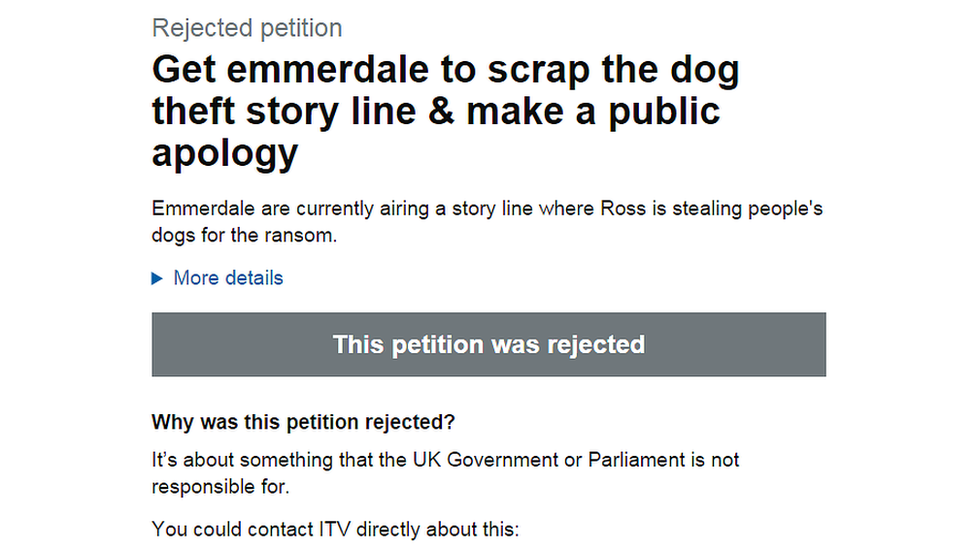
ITV's Emmerdale proved too controversial for one petitioner - but the government isn't responsible for the storyline.
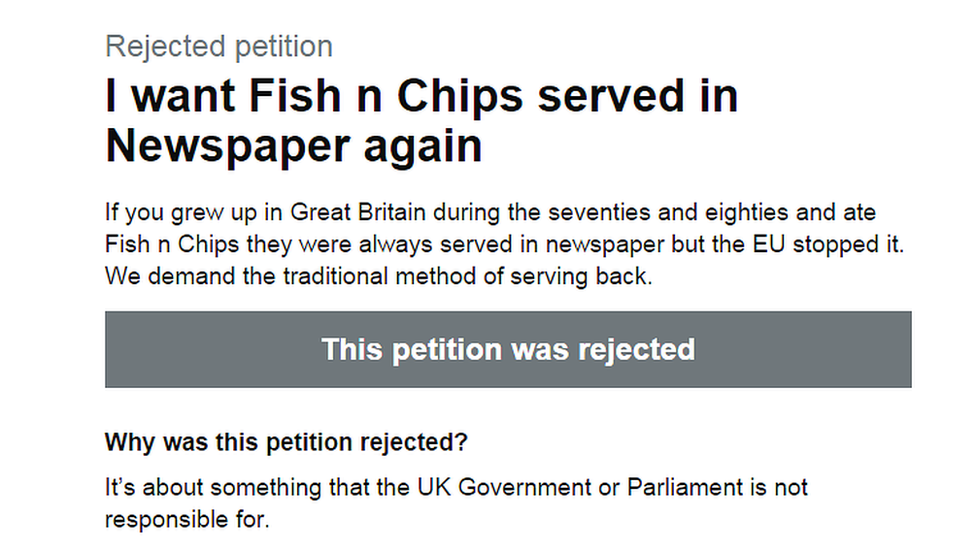
The government can't wrap your takeaway for you.
Petitions that aren't clear about what they want the government to do:
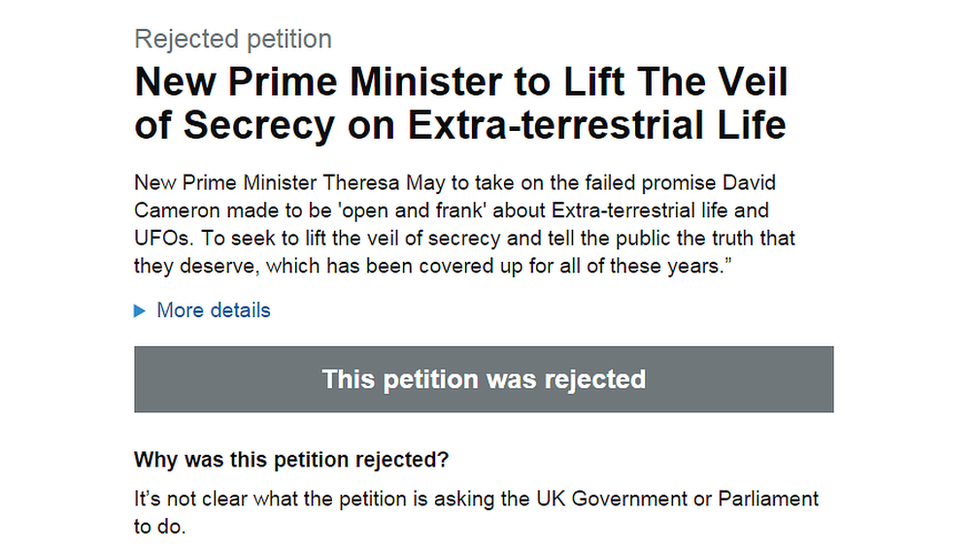
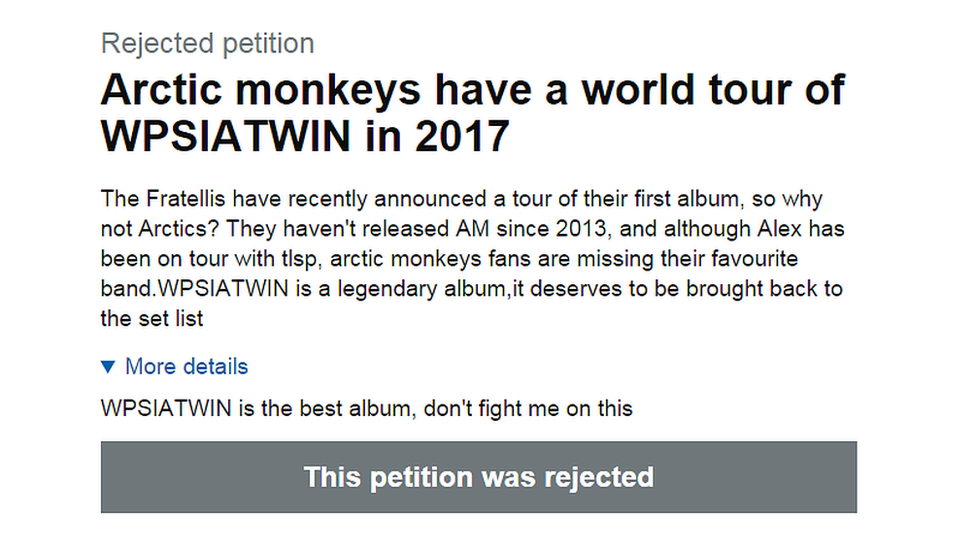
Petitions about a purely personal issue:
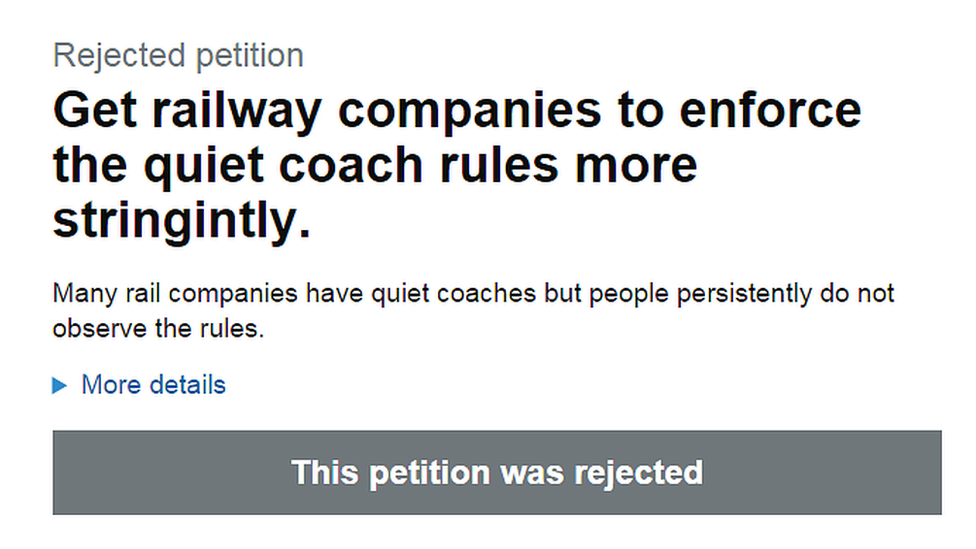
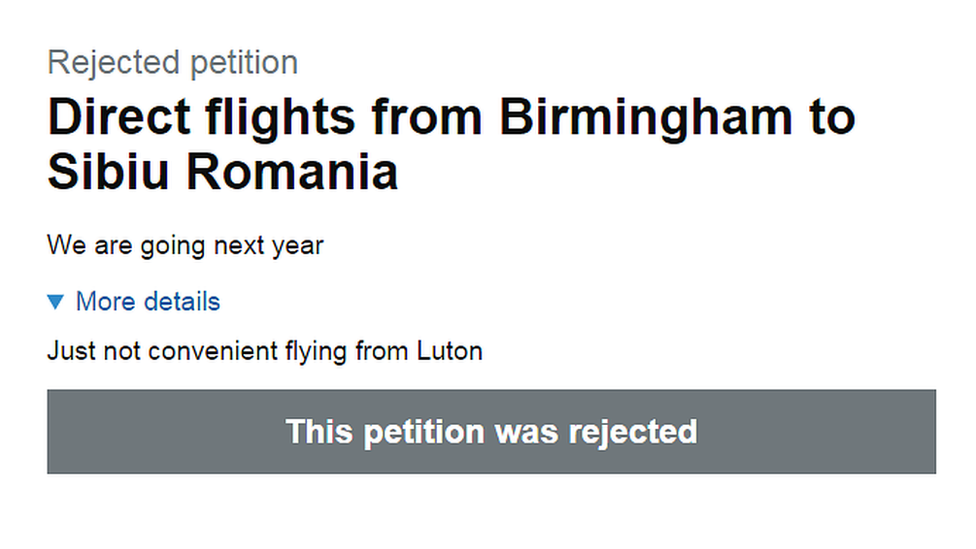
Petitions asking for an honour or appointment:
The Petitions Committee can't nominate someone for an honour - there's already a system in place for members of the public to nominate people directly., external
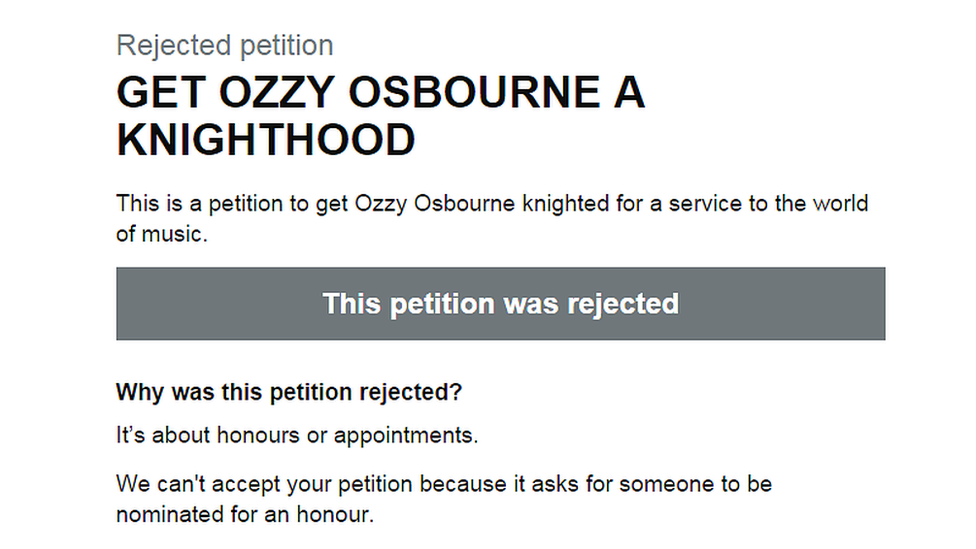
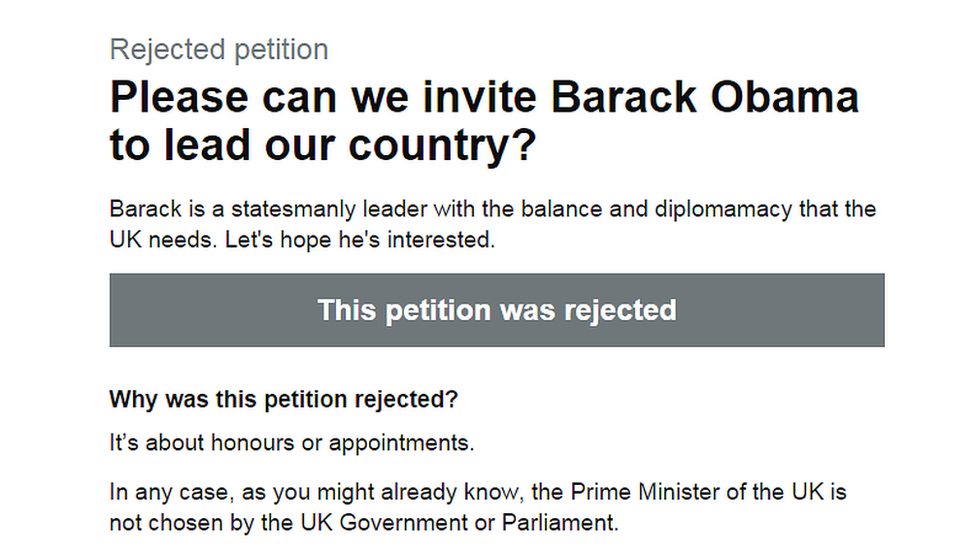
Also rejected, a series of petitions about raccoons:
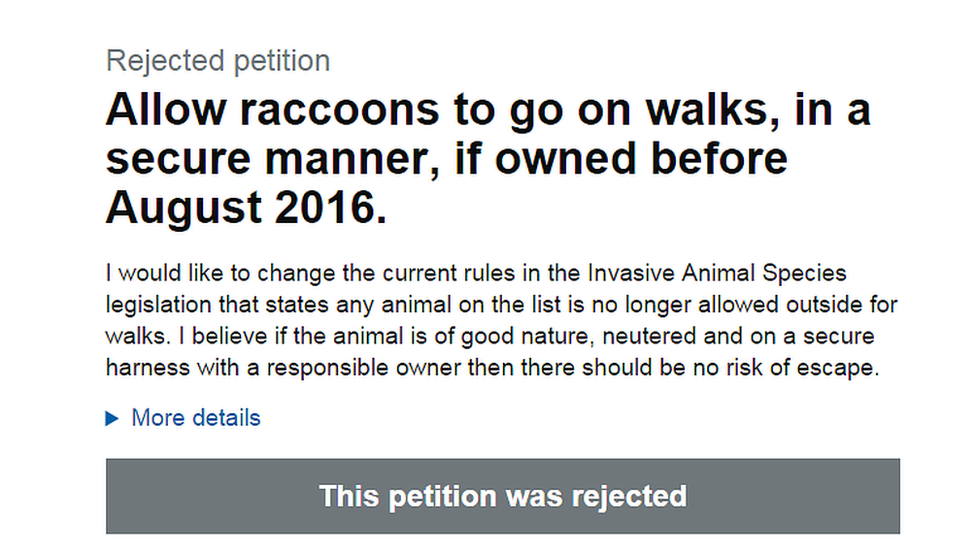
Raccoon petitions were rejected because the complaints were about EU rules - at least until Brexit
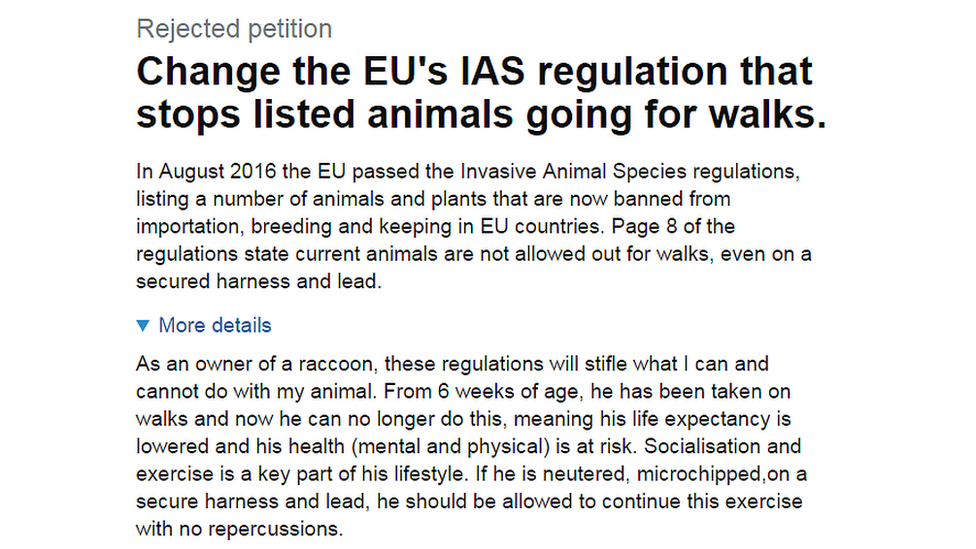
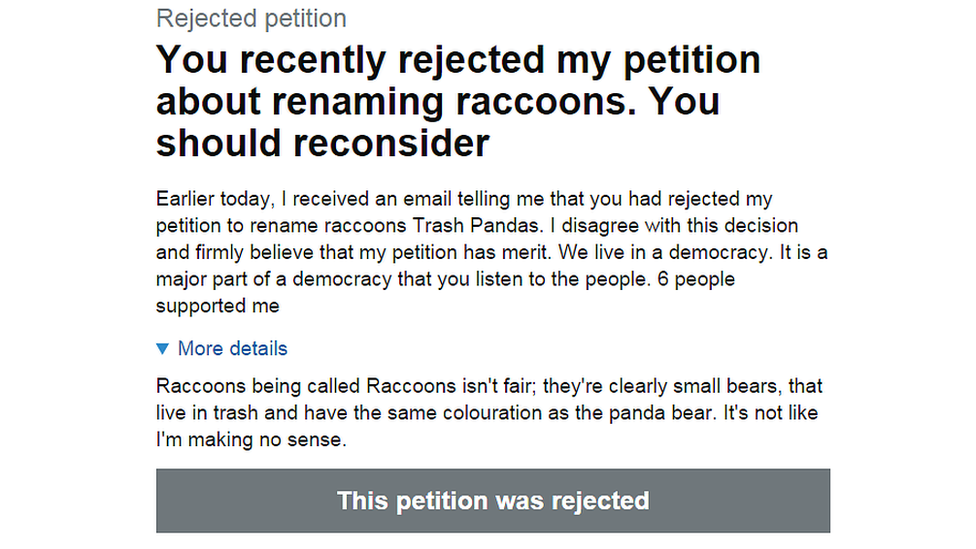
There's hope for some petitioners though - this petition calling for police horses and dogs to be given the same legal protections as their human colleagues will be debated in parliament's Westminster Hall on 14 November, external.
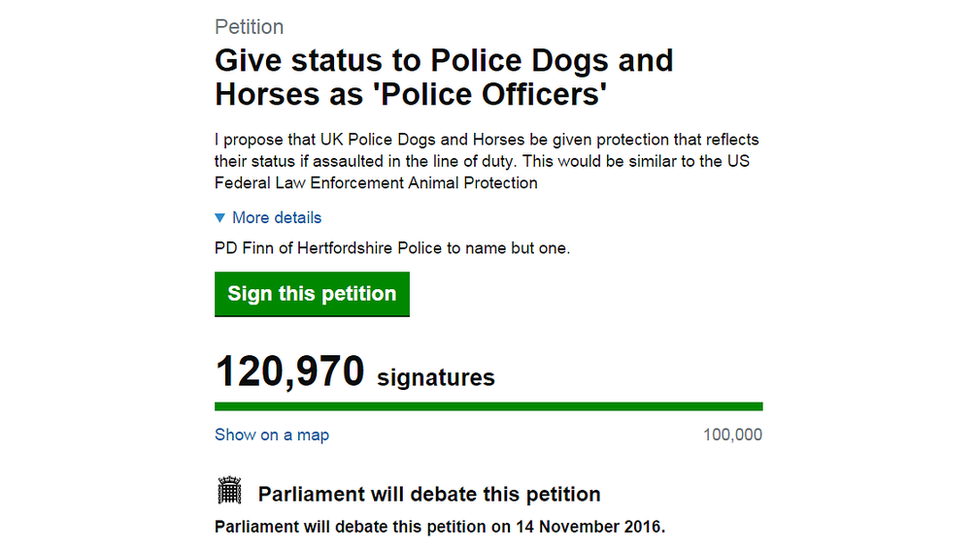
Popular petitions
The most popular e-petitions ever cover some slightly less unusual subjects.
The petition with the most signatures - over four million of them - called on the government to hold a second EU membership referendum, external if either Leave or Remain were backed by less than 60% of voters and saw a turnout of less than 75%.
The petition, which attracted a flood of signatures after June's Brexit vote, was debated in September, but there's been no sign of another referendum.
Another petition that gained widespread attention was a call for parliament to ban Republican presidential candidate Donald Trump, external from entering the UK.
It was debated in January 2016. Mr Trump remains free to visit Britain.
Despite these petitions successfully making it into the debating chamber, one member of the public felt Parliament would be better off without having to talk about them:
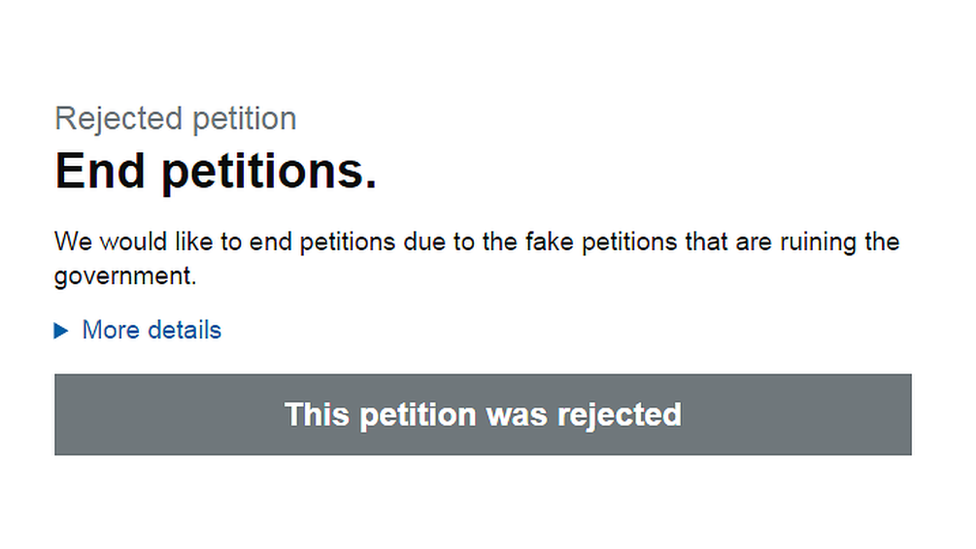
No laughing matter.